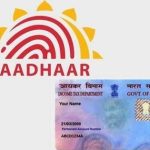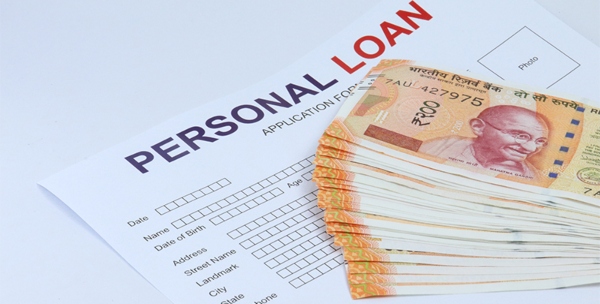The documentation necessary for a personal loan application can vary based on the lender, your employment status (salaried or self-employed), and the loan amount. Nonetheless, here is a generic list of documents you may need to assemble:
Commonly required documents
Documentation for identity verification: Acceptable proofs include a passport, driver’s license, voter ID card, or Aadhar card (if applicable).
Documentation for address verification: Suitable proofs encompass a utility bill (electricity, water, gas), bank statement, rental agreement, or passport (if the address is specified).
Proof of income for salaried individuals: Provide salary slips from the previous three months and details about your employer.
Proof of income for self-employed individuals: Furnish audited financial statements from the past two years, bank statements covering the last six months, and evidence confirming the existence of your business (such as registration documents and licenses).
Bank statements: Typically covering the last 3-6 months, based on the lender’s criteria.
Passport-sized photographs: Generally, two to four, subject to the lender’s specifications.
Supplementary documents (may be necessary in certain instances)
Tax return records: Required for self-employed individuals or specified loan amounts.
Evidence of residence ownership: This might include property registration documents or a sale deed (if applicable).
Verification of office address and ownership: Applicable for self-employed individuals, involving ownership documents for the office space.
Various lenders have distinct requirements, making it prudent to verify the precise list of necessary documents with the particular lender you are applying to. Having all the required documents ready can accelerate the application process. Ensure to double-check all information and documents for accuracy and completeness to prevent processing delays.
Frequently Asked Questions (FAQs)
Q. Can you get a personal loan without documents?
Although conventional credit scoring is a key factor in the approval process for most lenders when it comes to personal loans, there are specific instances where lenders may take into account alternative factors beyond your credit score alone. In certain scenarios, your past financial history and established relationship with a lending institution could impact your eligibility to obtain a personal loan sans submission of any documents. These include:
- Customers with a prolonged history of banking
- Individuals with substantial net worth
- Character-based lending
Nevertheless, even in such situations, maintaining a favourable credit score remains advantageous. It can greatly enhance your likelihood of loan approval, help secure a reduced interest rate, and provide access to more favourable loan terms.
Q. What are the expenses associated with personal loans?
The expense of a personal loan is influenced by several factors, such as:
Loan amount: Increased loan amounts generally incur higher costs due to accruing interest.
Interest rate: This varies based on your creditworthiness, loan terms, and the lending institution.
Fees: Additional costs, including processing fees, origination fees, and prepayment penalties, contribute to the overall expense.
Q. How does one qualify for a personal loan?
To be eligible for a personal loan, you usually need to meet various criteria established by lenders. Here are some of the typical factors they take into account:
- The minimum credit score is a vital determinant, showcasing your creditworthiness. In general, a higher score enhances your likelihood of approval and makes you eligible for more favourable interest rates.
- Lenders seek consistent employment and a specified income threshold to verify your ability to repay the loan. Proof of income, such as salary slips or bank statements, may be requested to support these criteria.
- The debt-to-income ratio (DTI) gauges your total monthly debt commitments against your gross monthly income. A lower DTI suggests you have more available income to handle additional debt, presenting you as a more appealing borrower.
- Your residency, citizenship status, and current loan obligations may also be taken into account by lenders.
Q. What other options exist aside from personal loans?
While personal loans provide a convenient means to obtain funds, they may not always be the most suitable choice depending on your circumstances. Here are some alternatives worth considering:
– Tapping into your existing savings can be the most economical option, as it circumvents any interest charges. Nevertheless, it’s essential to balance the immediate need against your long-term financial objectives.
– Credit cards provide revolving credit, enabling you to borrow and repay funds continuously. This can be appropriate for continuous expenses or smaller purchases; however, caution is advised due to high interest rates and the potential for accumulating debt.
– Like a credit card, a personal line of credit grants access to funds up to a predetermined limit. Interest is only charged on the borrowed amount, potentially making it a more cost-effective option than a credit card when handled responsibly.
– Participating in peer-to-peer (P2P) lending involves borrowing from individual investors via online platforms. While it may offer competitive rates, the qualification requirements and terms can vary.
– Certain employers provide programs that enable you to access a portion of your forthcoming paycheck. While this can serve as a swift solution for unforeseen expenses, exercise caution as it may have implications for your future income.
– Based on your circumstances, you may qualify for government assistance programs designed to address specific needs such as housing, education, or food.
Q. What are the drawbacks of opting for a personal loan?
Although personal loans can prove beneficial in specific circumstances, they also entail several drawbacks to bear in mind:
Elevated interest rates: In contrast to alternative loan choices such as mortgages or secured loans, personal loans generally carry higher interest rates. Consequently, you may incur a substantial interest expense in addition to the borrowed principal amount.
Costs: Beyond the interest, personal loans frequently include extra fees, such as origination fees (a one-time charge for processing the loan) and late payment fees. These can contribute to a higher overall borrowing cost.
Credit score consequences: Failing to make timely loan repayments or delaying them can have adverse effects on your credit score. This can complicate and increase the cost of future borrowing, influencing areas such as car loans, mortgages, and even securing an apartment.
Debt load: Acquiring a personal loan contributes to your overall debt load. Ensure that you can manage the monthly payments comfortably without compromising your capacity to fulfill other financial obligations.
Risk of overindulgence: The accessibility of funds through a personal loan can tempt impulsive spending or exceeding your budget. It is essential to have a well-defined purpose for the loan and adhere to it to prevent incurring unnecessary debt.
Restricted applicability for specific expenses: Personal loans are typically unsuitable for funding extended investments or assets such as houses or cars, given their shorter repayment terms and potentially higher interest rates.
Thoughtfully assess these drawbacks in comparison to the potential advantages of a personal loan before determining if it suits your situation. Contemplate investigating alternative options such as utilising your savings, negotiating payment plans with creditors, or exploring applicable government assistance programs.
Source By: livemint
Share:












